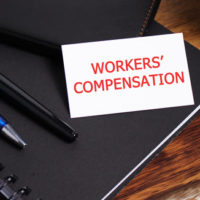How Vocational Rehabilitation Can Help Injured Workers in Maryland

Vocational rehabilitation is a specific type of workers’ compensation benefit available to injured employees in Maryland. Administered by the Maryland Workers’ Compensation Commission (the Commission), vocational rehabilitation helps certain disabled workers find suitable employment. Among other services, vocational rehabilitation enables covered employees to benefit from employment-related testing, training, placement and counseling.
Who is Eligible for Vocational Rehabilitation in Maryland?
Vocational rehabilitation is only available to disabled workers who suffer a qualifying work-related injury. Additionally, the injury must result in a condition that prevents the worker from returning to their previous job or working capacity.
From a procedural standpoint, the worker must obtain authorization from their insurer to seek vocational rehabilitation benefits. If the insurer refuses to authorize vocational rehabilitation, the worker can petition the Commission for review. Then the Commission will decide whether or not to award vocational rehabilitation benefits.
What is the Usual Timeline for Vocational Rehabilitation in Maryland?
In most cases, the vocational rehabilitation timeline in Maryland is a four-step process.
- Counselor Interview — The disabled worker will have an interview with a counselor and provide background information on work, medical and professional history.
- Plan Development — The counselor will work with the disabled worked to design a plan for future employment with specific goals and targets.
- Mutual Agreement — All parties must agree on the reasonableness of the plan, goals and targets. If the parties cannot agree, then the Commission will step in and review the proposed plan.
- Plan Execution — After the Commission approves the vocational rehabilitation plan, the disabled worker and counselor will work together to achieve the specific goals and targets.
Do Workers Receive the Same Compensation After Vocational Rehabilitation?
The ultimate goal of vocational rehabilitation is to help workers return to their previous working and earning capacity. But the unfortunate reality is that many disabled workers are unable to perform the same work duties after injury.
In many cases, the counselor or the Commission will attempt to keep the disabled worker with their current employer. Even if the worker has to change job functions or modify their duties, they may be able to retain other accrued benefits.
That being said, it is not always possible to keep a disabled worker within the same company or job function, even with modified duties. In those cases, the counselor or the Commission will expand the scope of the job search to other employers, industries and job functions. If necessary, the disabled worker will receive training and development to help secure gainful employment.
Let Us Help You Today
If you were hurt at work and have questions about vocational rehabilitation, there are countless benefits to retaining a skilled workers’ compensation attorney. Based in Baltimore, Maryland, the attorneys at Iamele & Iamele, LLP have proven skill in the field of personal injury law, including workers’ compensation claims. If you need legal help, contact us today for a free initial consultation.
Resource:
wcc.state.md.us/Gen_Info/WCC_Benefits.html

